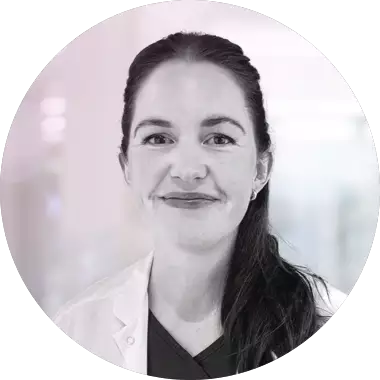Optimize your fertility with our diet guide
Are you aware that your diet can directly affect your fertility and reduce risks during pregnancy?
Book an appointment
Are you aware that your diet can directly affect your fertility and reduce risks during pregnancy?
Book an appointment
We all know that you should have a balanced diet, but many people pay extra attention to this when starting fertility treatment. Many scientific studies have been done that show an indication that a balanced diet and good routines can positively affect fertility in women and sperm quality in men.
At Klinikk Hausken, we recognize how important a healthy and varied diet is for fertility. Let us help you find the right nutritional balance for your fertility journey.
The path to parenthood can be complex. That's why we offer individually tailored nutrition plans that strengthen your fertility and overall health. Kine Ølund Nereng, our dietitian, specializes in guiding women and couples through IVF and other fertility treatments. With Kine's expertise, you can expect a marked improvement in your fertility and overall well-being.
Kine has an impressive history of helping individuals and couples toward a healthier life. Her expertise ranges from supporting MS and cancer patients, to those seeking optimal fertility. Kine's goal is to create positive, lasting lifestyle changes that support both your health and your fertility goals.
Kine is a trained nurse and has additionally taken a Bachelor of Science in Nutrition. She has experience providing dietary guidance for MS and cancer patients and others who have wanted a better lifestyle and/or weight reduction. Kine is passionate about a healthier lifestyle and can be helpful with dietary counseling in connection with IVF treatment, diseases such as PCOS and endometriosis, and weight reduction. She can also help achieve a healthy and safe diet in connection with pregnancy.
Your first consultation with Kine is a personal mapping session, where she gets to know you, your background and your habits. Based on this insight, she develops a detailed diet plan tailored to your unique needs. Our consultations are flexible — available both at the clinic in Haugesund and via video/telephone. Follow-up conversations focus on progression and adjustments, key to achieving your health and fertility goals.
It's a good idea to start with folate/folic acid as soon as you plan to become pregnant. The recommendation is to start as early as 3 months before pregnancy, but if you have not started before you have received a positive test, you should start then. As a rule, it goes perfectly fine. Folate/folic acid prevents spinal hernia. The neural tube closes at week 6 of pregnancy, but you should still continue taking folic acid until week 12 of pregnancy.
Unfortunately, there is little you can do as a woman when you are born with the eggs you have. Men, on the other hand, can improve sperm quality by eating foods high in zinc and selenium, such as shellfish and nuts. A study also shows that organic foods can improve sperm quality as these contain fewer pesticide residues. However, a healthy diet and a normal weight are exclusively positive for fertility, both for women and men. Feel free to eat lots of vegetables, fruits, nuts, fish and coarse whole grain products.
There is no evidence that pregnancy is easier when you are slim, unless you have a condition called PCOS. The BMI limit is set because there is a higher risk of developing serious pregnancy complications such as preeclampsia, gestational diabetes, bleeding, miscarriage and premature birth.
It's not true, but you should eat extra nutritious so that the fetus gets all the nutrients it needs. In the first trimester, you should eat more or less normally, but you can increase by about 100 calories daily, such as a banana, if you feel particularly hungry. In the second trimester, you should increase by about 300 extra calories daily, equivalent to a slice of bread with toppings and a banana. In the third trimester, you should increase by about 500 calories daily, which corresponds to about two slices of bread with toppings and one to two fruits.
PCOS is a very common health condition that affects some women of reproductive age. It is a hormonal imbalance that can cause irregular menstruation, acne, excess hair growth and weight gain. Although there is no cure for PCOS, there are treatments that can help manage the symptoms. To stabilize blood sugar and achieve a more stable cycle, as well as a natural ovulation, it is important to focus on the diet (and, if necessary, medications). By cutting down on sugar and fast carbohydrates, you can help your body's menstrual cycle and possibly also lose weight if you're overweight.
Are you ready to take the first step towards a healthier fertility journey? Contact us to arrange your first consultation with Kine. The price for the first meeting is NOK 1325, -, with follow-up calls at NOK 660, -
Pricelist
Interest-free payment
Frequently Asked Questions
Customer Experiences
IVF Podcast
Find what you're looking for:

You have two choices: Send message with questions. Or choose the day and time of your appointment in our booking system.
🕒 Opening hours: Mon-Fri 8am-4pm
🏷️ Prices: The Fertility Test: from NOK 2500 • Sperm test: 2400 kr • Gynaecological examination: 2000 kr • Ultrasound: 2000 kr • NIPT: 8700 kr • See price list >>
ℹ️ More info: See doctors, address and map for your clinic:




Leger på vår klinikk i Oslo:
Dr. Ingrid Børke • Dr. Adrian Botea • Dr. Ragni Kvestad Idland • Dr. Guri Pande-Rolfsen
Adresse Klinikk Hausken Oslo:
Lysaker Torg 5, 1366 Lysaker

Leger på vår klinikk i Stavanger:
Dr. Arne Schwennicke
Adresse Klinikk Hausken Stavanger:
Eiganesveien 10-12, 4008 Stavanger


Leger på vår klinikk i Bergen:
Dr. Ørjan L. Vermeer • Dr. Kirsten Øvergaard Hope
Adresse Klinikk Hausken Bergen:
Kong Oscars gate 66-68, 5017 Bergen

Leger på vår klinikk i Haugesund:
Dr. Jon Hausken
Adresse Klinikk Hausken Haugesund:
Karmsundgata 59B, 5531 Haugesund
📅 Book your appointment here: Book directly or send us your questions first.

Your details are safe
The information you submit to us via this form is processed in a secure manner. Sensitive personal data and data are encrypted in accordance with strict requirements for the healthcare sector. No unauthorized person can see your details.

“Klinikk Hausken has modern clinics in Oslo, Stavanger, Bergen and Haugesund”


Our team of physicians and embryologists have access to cutting-edge technologies in fertility and gynecology.


The clinic has grown since its inception in 2006. We help more singles and couples with IVF treatment than anyone else.


With us, you will receive a treatment that is exactly tailored to you. That's a major reason for our success rate.